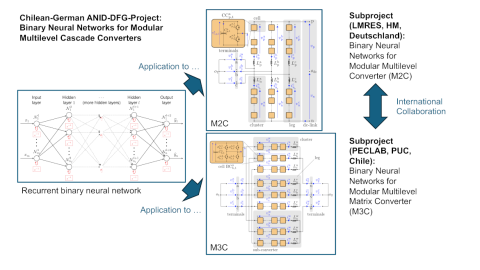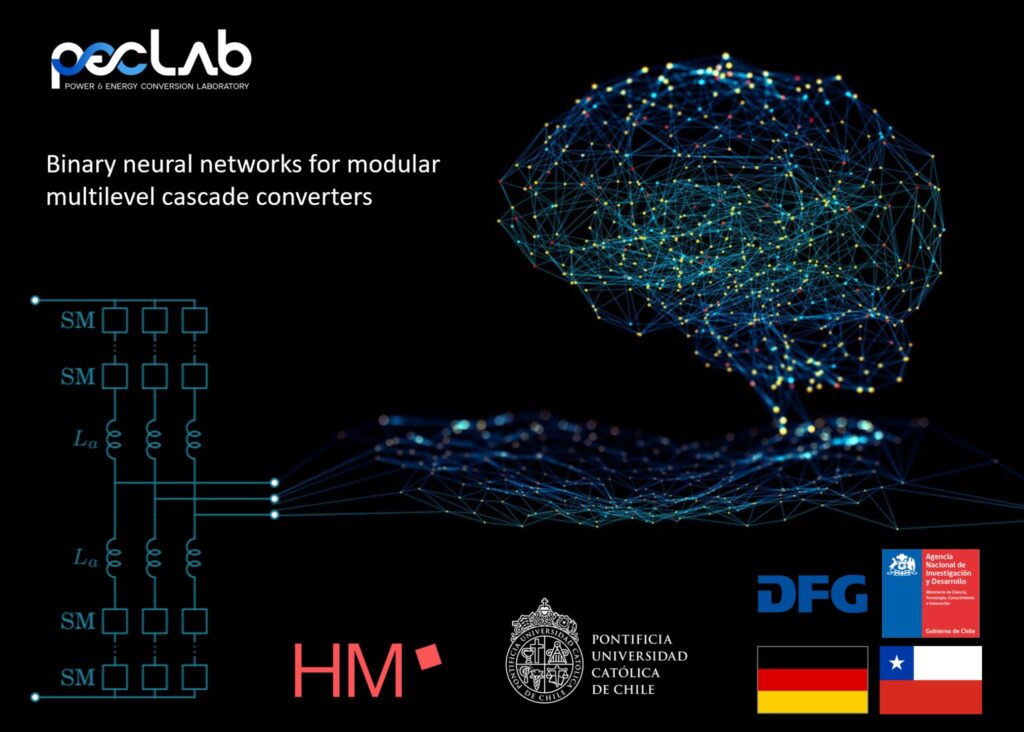

This project is funded by the German Research Foundation (DFG) and Chilean National Agency of Research and Development (ANID) and is a joint project with the Pontifical Catholic University of Chile (Prof. Dr.-Ing. Félix Rojas).
Project description
In this project, binary neural networks are intended to be used for the first time worldwide in power electronics to enhance the performance and reliability of complex inverter topologies.
We propose to introduce and apply BNNs to power electronic systems for the very first time, in particular to Modular Multilevel Cascade Converters (MMCCs) for advanced modulation, observation, fault detection & diagnosis (FDD) and active fault-tolerant control systems (AFTCS); and, in this regard, we want to give first answers to the following, intrinsically arising research questions:
– Is it feasible to implement Binary Neural Networks (BNNs) on FPGA-based real-time systems as used in MMCCs?
– Is it meaningful to apply BNNs for modulation, observation, fault-detection & diagnosis (FDD) and fault-tolerant control in MMCCs?
– Is it possible to enhance the performance of MMCCs by using BNN-based modulation, observation, FDD and fault-tolerant control?
This Chilean-German research project will be conducted by the Laboratory for Mechatronic and Renewable Energy Systems (LMRES) at the Hochschule München (HM) University of Applied Sciences, Germany and the Power Energy Conversion Laboratory (PECLAB), Pontifical Catholic University of Chile, Chile. The close collaboration of both laboratories will give answers to the research questions above for the most widely used MMCC topologies: the Dual-Star Chopper Cell Modular Multilevel Cascade Converter (DSCC-MMCC) and the Triple-Star Bridge Cell Modular Multilevel Cascade Converter (TSBC-MMCC). The LMRES will focus on the DSCC-MMCC, whereas the PECLAB will focus on the TSBC-MMCC.
Project team
LMRES
PECLAB
- Lillo, Jonathan (M.Sc.)
- Araus, Igor (Electrical Engineer)
- Pereda, Javier (Prof. Dr.)
- Rojas, Félix (Prof. Dr.-Ing.)

